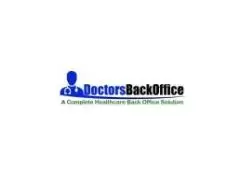Leveraging Electronic Health Record Data for Improved Healthcare Outcomes.
Description
In today's digitally driven healthcare landscape, the wealth of information contained within electronic health record (EHR) data has become a powerful resource for driving clinical decision-making, enhancing patient care, and advancing population health initiatives. Electronic health record data, encompassing both electronic medical records and electronic health records, holds immense potential to revolutionize healthcare delivery by providing comprehensive insights into patient health, treatment outcomes, and healthcare system performance.
At its core, electronic health record data represents a digitized repository of patient health information, spanning medical histories, diagnoses, medications, laboratory results, and treatment plans. By centralizing this information within electronic systems, healthcare providers gain immediate access to a patient's complete health record, facilitating more informed and coordinated care across various healthcare settings.
One of the key advantages of electronic health record data lies in its ability to support evidence-based clinical decision-making. By leveraging advanced data analytics and decision support tools, healthcare providers can harness the vast trove of patient data within EHRs to identify patterns, trends, and correlations that inform diagnosis, treatment planning, and preventive care strategies. This real-time access to actionable insights enables clinicians to deliver personalized, targeted interventions that optimize patient outcomes and reduce the risk of adverse events.
Moreover, electronic health record data plays a crucial role in supporting population health management initiatives. By aggregating and analyzing data from large patient cohorts, healthcare organizations can identify high-risk populations, track disease prevalence, and implement targeted interventions to improve community health outcomes. From chronic disease management to preventive care initiatives, electronic health record data provides the foundation for evidence-based population health strategies that address the unique needs of diverse patient populations.
Additionally, electronic health record data facilitates seamless communication and information exchange across healthcare settings, promoting care coordination and collaboration among multidisciplinary care teams. Whether transitioning between primary care providers, specialists, or healthcare facilities, electronic health record systems ensure that pertinent patient information is readily available, reducing duplication of tests, minimizing medication errors, and enhancing continuity of care.
In conclusion, electronic health record data represents a cornerstone of modern healthcare delivery, empowering providers with actionable insights that drive clinical decision-making, enhance patient care, and improve population health outcomes. By harnessing the full potential of electronic medical records and electronic health records, healthcare organizations can unlock new opportunities for innovation, efficiency, and quality improvement in patient-centered care.
US Address
233 Clear River Pl, Cary, NC 27519
+1 214 628 1717 / +91 866 767 7019






You must log in or register a new account in order to contact the publisher
Useful information
- Avoid scams by acting locally or paying with PayPal
- Never pay with Western Union, Moneygram or other anonymous payment services
- Don't buy or sell outside of your country. Don't accept cashier cheques from outside your country
- This site is never involved in any transaction, and does not handle payments, shipping, guarantee transactions, provide escrow services, or offer "buyer protection" or "seller certification"



